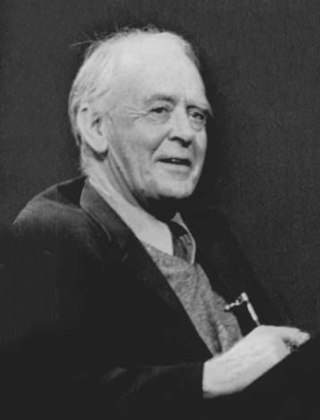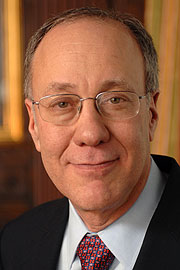Related Research Articles

Neoclassical economics is an approach to economics in which the production, consumption, and valuation (pricing) of goods and services are observed as driven by the supply and demand model. According to this line of thought, the value of a good or service is determined through a hypothetical maximization of utility by income-constrained individuals and of profits by firms facing production costs and employing available information and factors of production. This approach has often been justified by appealing to rational choice theory.

Rational choice theory refers to a set of guidelines that help understand economic and social behaviour. The theory originated in the eighteenth century and can be traced back to the political economist and philosopher Adam Smith. The theory postulates that an individual will perform a cost–benefit analysis to determine whether an option is right for them. Rational choice theory looks at three concepts: rational actors, self interest and the invisible hand.
In economics, utility is a measure of the satisfaction that a certain person has from a certain state of the world. Over time, the term has been used in at least two different meanings.

Sir John Richard Hicks was a British economist. He is considered one of the most important and influential economists of the twentieth century. The most familiar of his many contributions in the field of economics were his statement of consumer demand theory in microeconomics, and the IS–LM model (1937), which summarised a Keynesian view of macroeconomics. His book Value and Capital (1939) significantly extended general-equilibrium and value theory. The compensated demand function is named the Hicksian demand function in memory of him.

Decision theory or the theory of rational choice is a branch of probability, economics, and analytic philosophy that uses the tools of expected utility and probability to model how individuals should behave rationally under uncertainty. It differs from the cognitive and behavioral sciences in that it is prescriptive and concerned with identifying optimal decisions for a rational agent, rather than describing how people really do make decisions. Despite this, the field is extremely important to the study of real human behavior by social scientists, as it lays the foundations for the rational agent models used to mathematically model and analyze individuals in fields such as sociology, economics, criminology, cognitive science, and political science.
The expected utility hypothesis is a foundational assumption in mathematical economics concerning decision making under uncertainty. It postulates that rational agents maximize utility, meaning the subjective desirability of their actions. Rational choice theory, a cornerstone of microeconomics, builds this postulate to model aggregate social behaviour.
In economics, a cardinal utility expresses not only which of two outcomes is preferred, but also the intensity of preferences, i.e. how much better or worse one outcome is compared to another.

Social choice theory is a branch of welfare economics that analyzes methods of combining individual opinions, beliefs, or preferences to reach a collective decision or create measures of social well-being. It contrasts with political science in that it is a normative field that studies how societies should make decisions, whereas political science is descriptive. Social choice incorporates insights from economics, mathematics, philosophy, political science, and game theory to find the best ways to combine individual preferences into a coherent whole, called a social welfare function.
In decision theory, the Ellsberg paradox is a paradox in which people's decisions are inconsistent with subjective expected utility theory. John Maynard Keynes published a version of the paradox in 1921. Daniel Ellsberg popularized the paradox in his 1961 paper, "Risk, Ambiguity, and the Savage Axioms". It is generally taken to be evidence of ambiguity aversion, in which a person tends to prefer choices with quantifiable risks over those with unknown, incalculable risks.
In decision theory and economics, ambiguity aversion is a preference for known risks over unknown risks. An ambiguity-averse individual would rather choose an alternative where the probability distribution of the outcomes is known over one where the probabilities are unknown. This behavior was first introduced through the Ellsberg paradox.

Eric Stark Maskin is an American economist and mathematician. He was jointly awarded the 2007 Nobel Memorial Prize in Economic Sciences with Leonid Hurwicz and Roger Myerson "for having laid the foundations of mechanism design theory". He is the Adams University Professor and Professor of Economics and Mathematics at Harvard University.

Roger Bruce Myerson is an American economist and professor at the University of Chicago. He holds the title of the David L. Pearson Distinguished Service Professor of Global Conflict Studies at The Pearson Institute for the Study and Resolution of Global Conflicts in the Harris School of Public Policy, the Griffin Department of Economics, and the College of the University of Chicago. Previously, he held the title The Glen A. Lloyd Distinguished Service Professor of Economics. In 2007, he was the winner of the Sveriges Riksbank Prize in Economic Sciences in Memory of Alfred Nobel with Leonid Hurwicz and Eric Maskin for "having laid the foundations of mechanism design theory". He was elected a Member of the American Philosophical Society in 2019.
David Michael Garrood Newbery, CBE, FBA, is a British economist who has been Professor of Applied Economics at the University of Cambridge since 1988. He specialises in the field of energy economics, and he writes on the regulation of electricity markets. His interests also include climate change mitigation and environmental policy, privatisation, and risk.

Ehud Kalai is a prominent Israeli American game theorist and mathematical economist known for his contributions to the field of game theory and its interface with economics, social choice, computer science and operations research. He was the James J. O’Connor Distinguished Professor of Decision and Game Sciences at Northwestern University, 1975–2017, and currently is a Professor Emeritus of Managerial Economics and Decision Sciences.
David Schmeidler was an Israeli mathematician and economic theorist. He was a Professor Emeritus at Tel Aviv University and the Ohio State University.
In economics, and in other social sciences, preference refers to an order by which an agent, while in search of an "optimal choice", ranks alternatives based on their respective utility. Preferences are evaluations that concern matters of value, in relation to practical reasoning. Individual preferences are determined by taste, need, ..., as opposed to price, availability or personal income. Classical economics assumes that people act in their best (rational) interest. In this context, rationality would dictate that, when given a choice, an individual will select an option that maximizes their self-interest. But preferences are not always transitive, both because real humans are far from always being rational and because in some situations preferences can form cycles, in which case there exists no well-defined optimal choice. An example of this is Efron dice.

Andreu Mas-Colell is an economist, an expert in microeconomics and a prominent mathematical economist. He is the founder of the Barcelona Graduate School of Economics and a professor in the department of economics at Pompeu Fabra University in Barcelona, Catalonia, Spain. He has also served several times in the cabinet of the Catalan government. Summarizing his and others' research in general equilibrium theory, his monograph gave a thorough exposition of research using differential topology. His textbook Microeconomic Theory, co-authored with Michael Whinston and Jerry Green, is the most used graduate microeconomics textbook in the world.

Convexity is a geometric property with a variety of applications in economics. Informally, an economic phenomenon is convex when "intermediates are better than extremes". For example, an economic agent with convex preferences prefers combinations of goods over having a lot of any one sort of good; this represents a kind of diminishing marginal utility of having more of the same good.
Edi Karni is an Israeli born American economist and decision theorist. Karni is the Scott and Barbara Black Professor of Economics at Johns Hopkins University. He is a Fellow of the Econometric Society and an Economic Theory Fellow of the Society for the Advancement of Economic Theory.
Zvi Safra is an Israeli and British economist and decision theorist. Safra is a professor at the Warwick Business School at the University of Warwick an emeritus professor at the Coller School of Management at Tel Aviv University. Safra is an editor at the Journal of Economics and Philosophy and an elected fellow of the Society for the Advancement of Economic Theory. Safra was formerly a Vice-Chancellor at the Israeli College of Management Academic Studies.
References
- ↑ "cv" (PDF). Aki Matsui's HP. Retrieved 2016-04-29.
- ↑ Itzhak Gilboa at the Mathematics Genealogy Project
- ↑ Gilboa, Itzhak; Schmeidler, David (January 1989). "Maxmin expected utility with non-unique prior". Journal of Mathematical Economics. 18 (2): 141–153. doi:10.1016/0304-4068(89)90018-9.
- ↑ WorldCat book page
- ↑ WorldCat